Analysis of Unemployment through Sociological Perspectives Report
VerifiedAdded on 2020/07/22
|5
|515
|43
Report
AI Summary
This report offers a sociological analysis of unemployment, exploring three key perspectives: functionalist, conflict, and interactionist. The functionalist perspective examines unemployment through the lens of societal structures, considering questions about skill gaps, education relevance, and the potential for manifest and latent functions, as well as dysfunctions. The conflict perspective investigates how societal inequalities, such as those based on race or social class, contribute to unemployment. The interactionist perspective focuses on the symbolic interactions and micro-level behaviors that shape individuals' experiences with unemployment. The report also includes a comparison of these perspectives and references relevant sociological literature, providing a comprehensive understanding of the complex issue of unemployment from a sociological standpoint.
1 out of 5
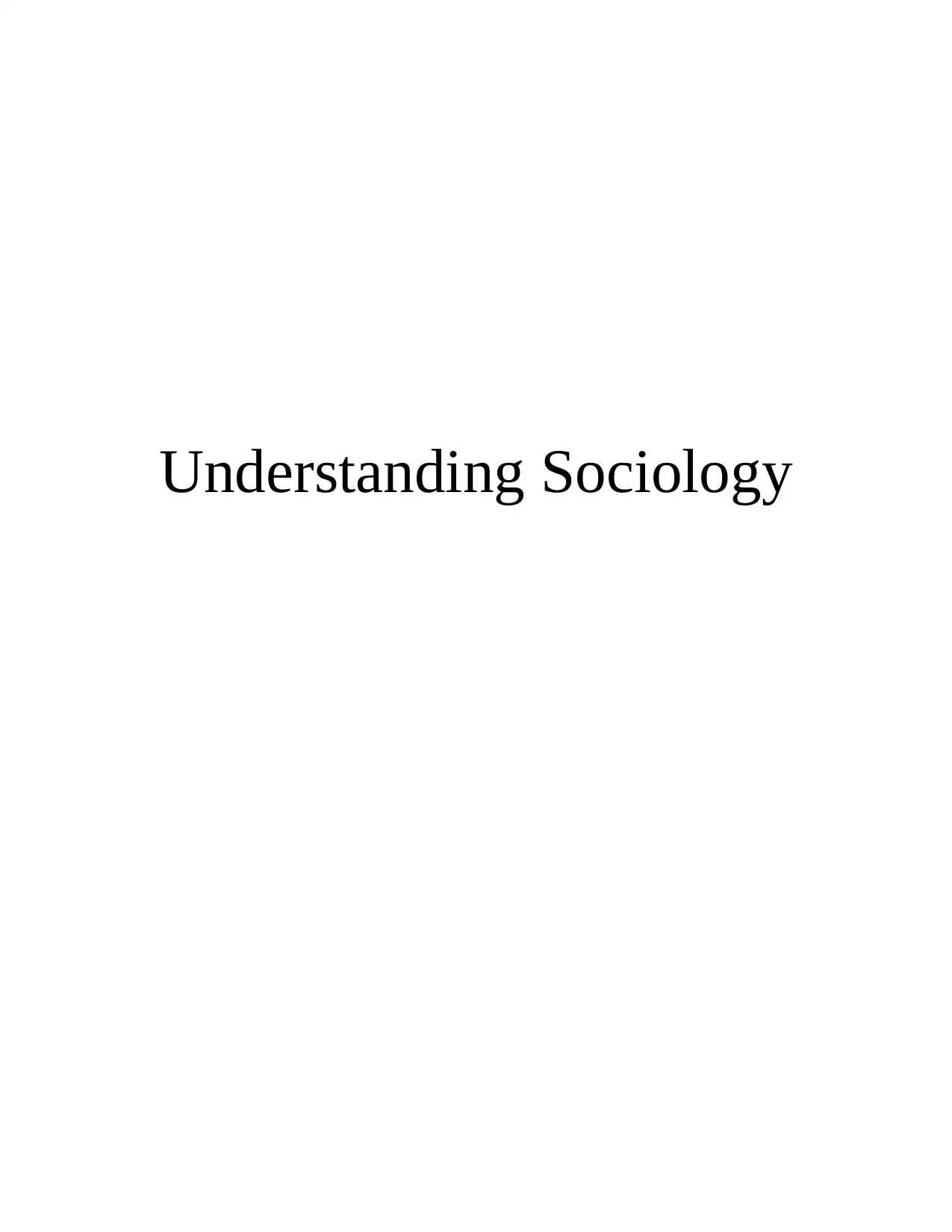
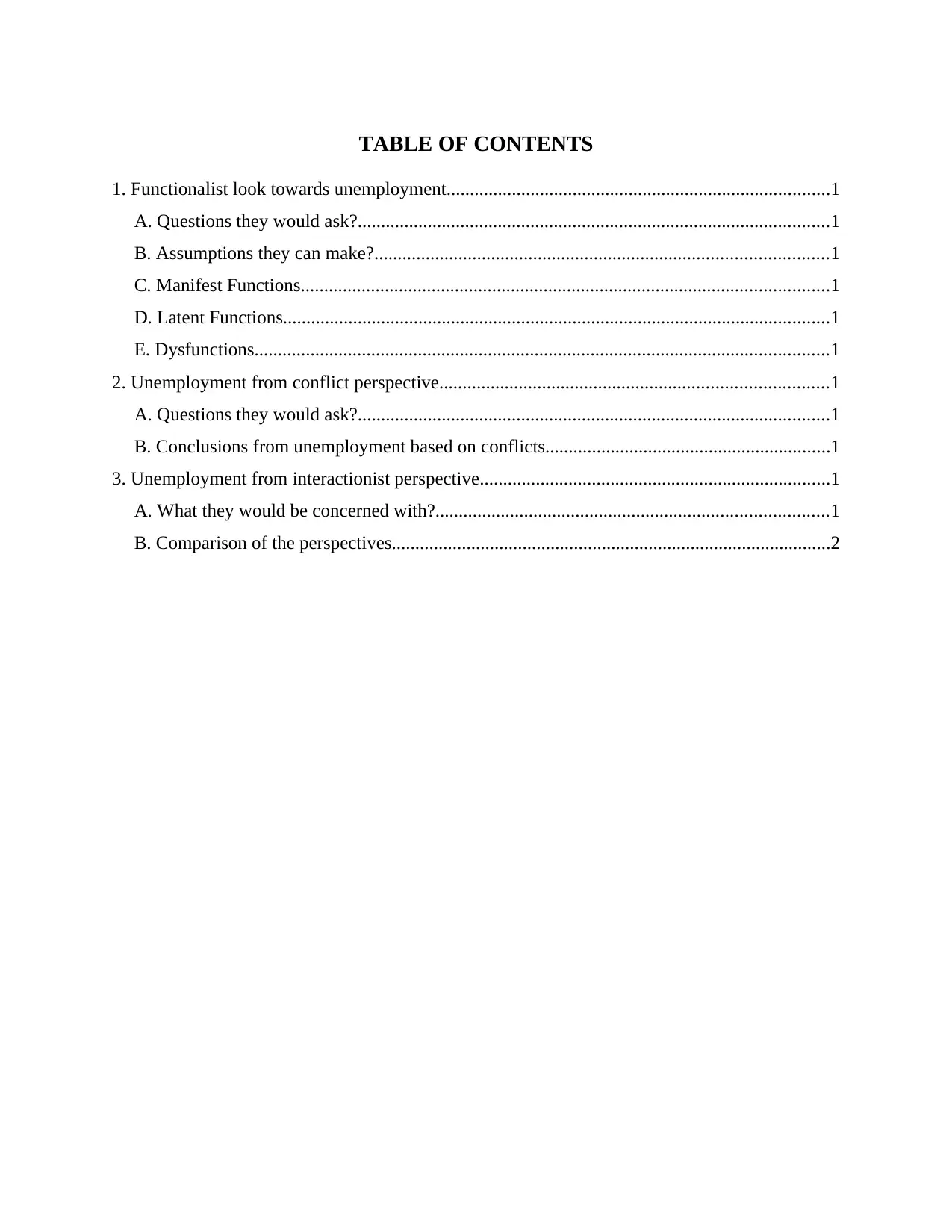
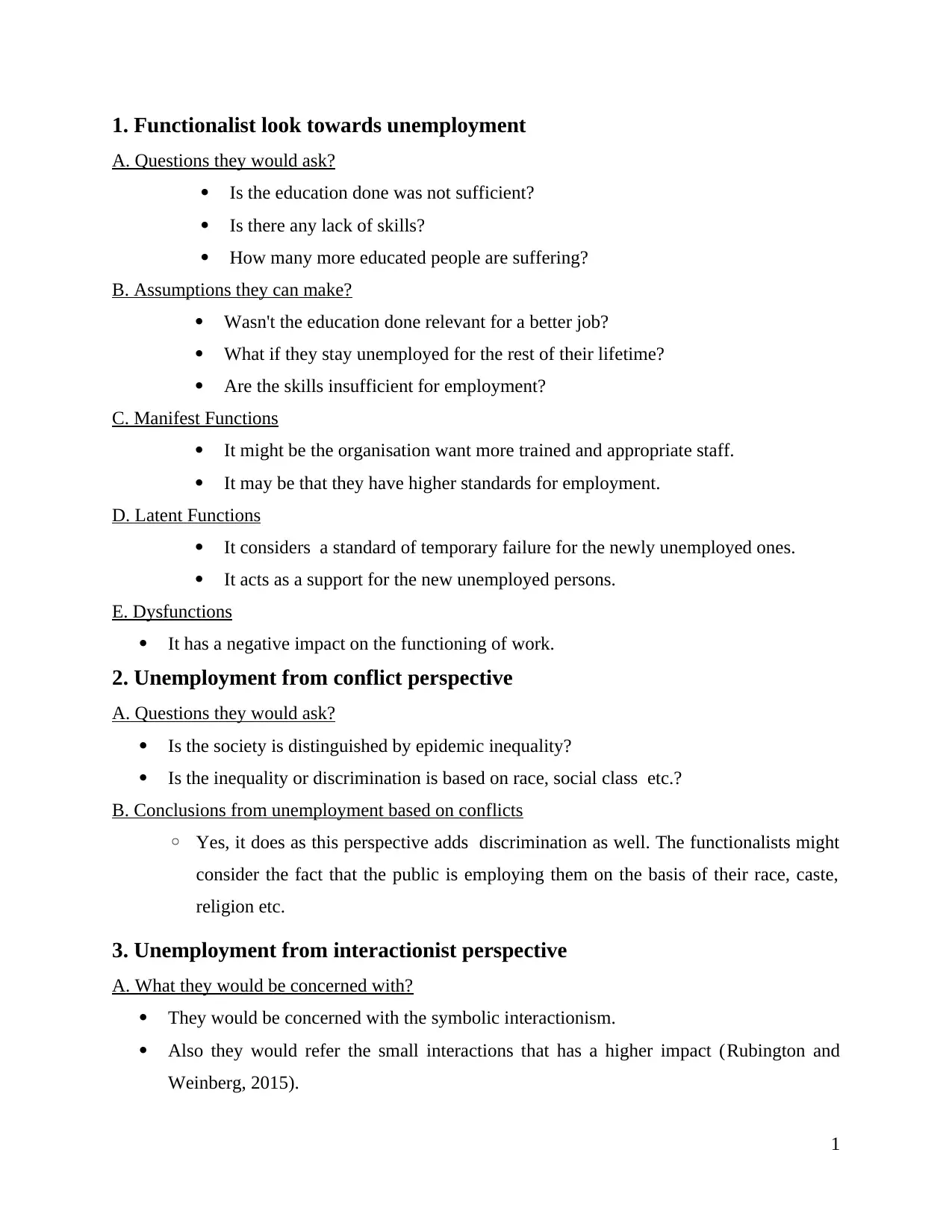

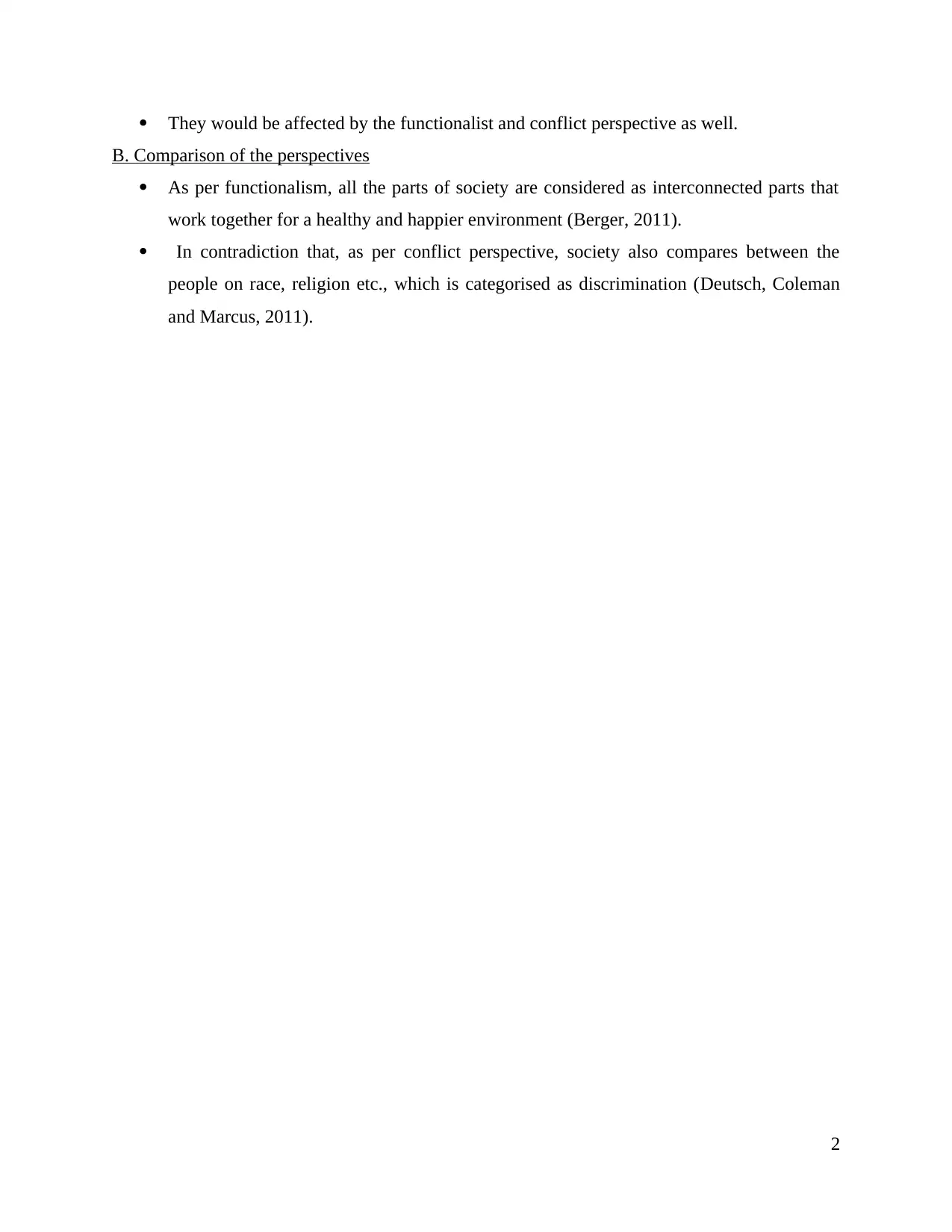
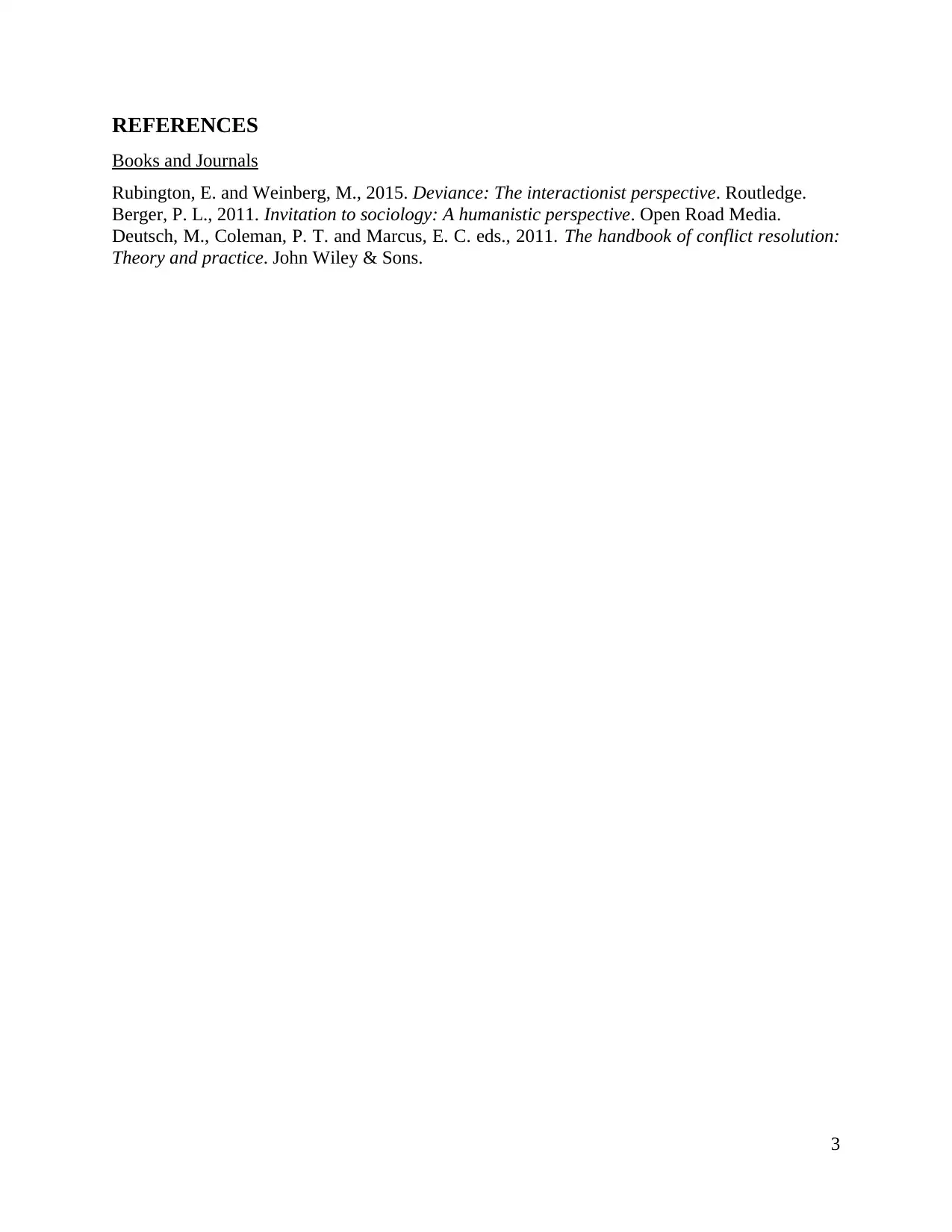
![[object Object]](/_next/static/media/star-bottom.7253800d.svg)